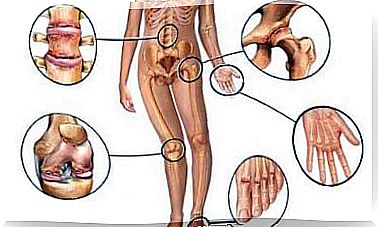Memory Leaks: What Is Normal?
Memory leaks are of various kinds. Some are due to the normal aging process, while others depend on a specific factor and only in the most serious cases are due to irreversible health problems.

Occasional memory loss is normal, but it is also a cause for concern for many people, especially the elderly. In most cases there is no reason to be anxious, since these are completely manageable or treatable situations.
Many of us have wondered what is normal and what is not in terms of memory leaks. It is not easy to establish it, since sometimes we forget things frequently and it is not necessarily due to a problem such as Alzheimer’s disease, but to an excess of stress or other temporary factors.
At other times, these forgetfulness tell us about the beginning of a cognitive decline that may or may not precede Alzheimer’s disease. To clear up any doubts, it is best to find out about the subject and consult your doctor. Let’s take a closer look at the issue.
Memory loss due to age

From the age of 20 we all begin to lose brain cells and this loss increases with age. Likewise, our body gradually reduces the formation of various chemicals that are necessary for neurons to function properly.
All these changes cause the brain to change the way it stores information in memory. As we age , memory losses are more common and the ability to learn new things is also reduced. This is not a sign of any serious health problems.
These memory changes have to do with specific issues, generally of little importance. You forget where your glasses are or what your commitments are for tomorrow. However, the characteristic of these memory losses is that they occur in older people and do not affect the ability to work , lead a social life and live independently.
Reversible memory leaks
Memory losses are sometimes related to more serious health problems, but they are treatable and reversible. There are factors that lead to frequent difficulty in remembering, but they are not a permanent memory loss process. Among those factors are:
- Brain diseases, such as a tumor or infection.
- Thyroid problems
- Injury or trauma to the head.
- High fever or dehydration.
- Alcohol consumption or consequences of alcoholism.
- Reaction to a drug.
- Vitamin B12 deficiency.
- Malnutrition.
In all these cases the indicated thing is to go to the doctor so that he determines the steps to follow. On the other hand, it is also common for memory losses to be related to an emotional state of stress, grief, anxiety or other emotional problems. In that case a psychotherapist helps significantly.
Irreversible memory loss

Difficulty remembering can also be a sign of mild cognitive impairment, Alzheimer’s disease, or other related dementia. People with mild amnestic cognitive impairment have more memory problems than normal, but not so severe as to prevent them from leading an independent life.
This type of deterioration is suspected when important events are frequently forgotten and there is difficulty finding the right words to express yourself. Only the doctor can diagnose this problem.
In the most severe cases , memory losses are due to Alzheimer’s disease or vascular dementia. Symptoms of these types of dementia include:
- Generalized difficulty remembering things.
- Ask the same question multiple times, or tell the same story repeatedly.
- Getting lost in places that are familiar, or in normal conditions that would be easily remembered.
- Disorientation in time-space.
- Problems handling money or keeping accounts for it.
- Increased anxiety or aggressiveness.
Other data to take into account
Anyone who is concerned about the functioning of their memory should see a doctor so that he can determine the possible causes and, if it is the case, diagnose the underlying health problem early. This early diagnosis usually significantly improves any prognosis.
Memory exercises and new learning, no matter how long or costly, are the best way to prevent memory loss. Regular physical exercise is a very advisable measure to preserve brain health.
At the moment there is no cure for Alzheimer’s disease, but there are treatments to slow the progression of this problem. Several ongoing investigations suggest that the cure for this disease could be available in the next 10 years.








